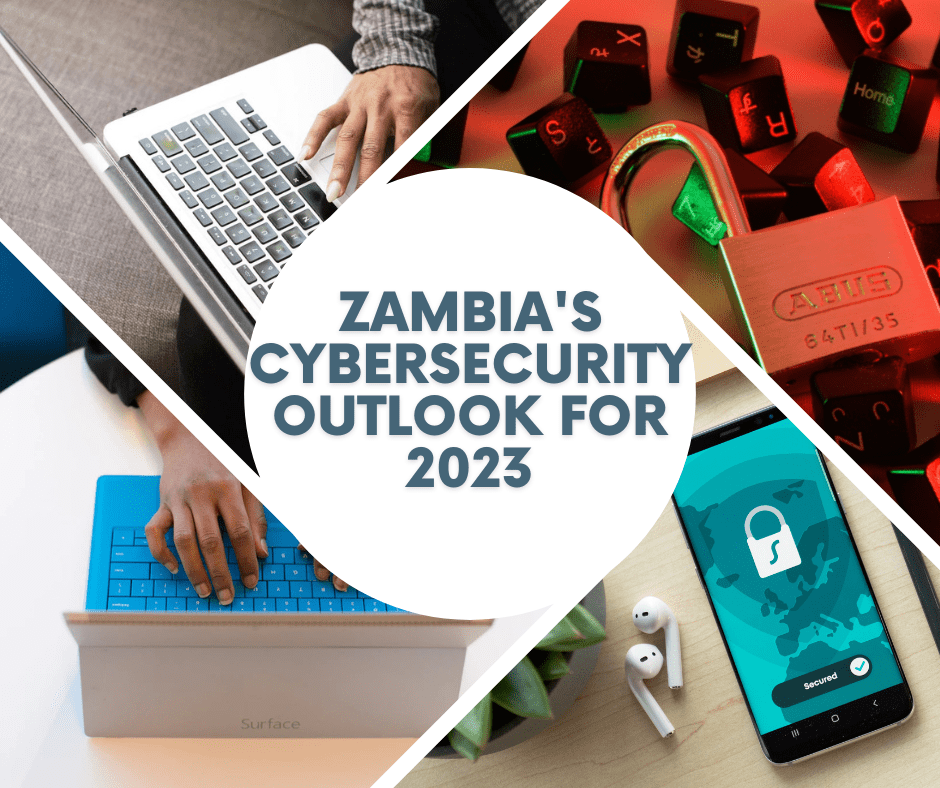As technology continues to advance, cybersecurity remains a top concern for organizations across the globe. Zambia is no exception, with businesses and government agencies alike investing significant portions of their IT budgets in protecting their networks, data, and digital assets.
- Its Brilliant To Reach Out
- enquiries@reachitzm.com
- (+260) 761955732
Zambia’s Cybersecurity Outlook for 2023: Trends and Threats to Watch Out For

A recent study found that between 20% and 50% of IT budgets in organizations with 10 to 300 employees are allocated to cybersecurity. This is a clear indication that cybersecurity is an area of critical importance, and it’s crucial to understand what the cybersecurity landscape will look like in the coming year to help prioritize investments.
Here are some of the trends and threats that Zambia can expect to face in 2023:

Human Error Will Remain the Weakest Link in Cybersecurity.
Despite advances in technology, the vast majority of successful cyber attacks still begin with social engineering strategies and phishing scams. In Zambia, employees will continue to be targeted, leading to fatigue with frequent password changes, multi-factor authentication requests, and other security requirements. To mitigate these risks, continuous cybersecurity awareness training, updates, and phishing simulations can help educate employees on how to defend themselves and the organization against attacks.
Ransomware Threats Will Continue to be a Menace.
Ransomware attacks have been on the rise globally, and Zambia has not been immune to these threats. In 2022, there were 236.1 million ransomware attacks worldwide, and this number is expected to continue to increase in 2023. The costs associated with a ransomware attack, beyond the ransom itself, have also increased. The operational, productivity, reputational, legal, financial, and other costs related to dealing with a ransom attack continue to rise. Therefore, it’s important to have a good, layered cybersecurity strategy in place and to be prepared to respond to a ransomware attack.
Social Media Will be Increasingly Used as a Weapon for Targeted Cyber Attacks.
In Zambia, cybercriminals are leveraging social media profiles to research potential phishing targets. They use publicly viewable profiles to help make their phishing emails seem more legitimate by including personal information about the recipient or the sender. Social media platforms themselves can also be taken advantage of to target social engineering attacks against employees on non-corporate platforms. To mitigate these risks, it’s essential to educate employees, develop company policies regarding social media usage, and secure and monitor corporate social media accounts.

The Rise of Cybercrime-as-a-Service.
The ability to rent cyberattack capabilities has significantly impacted who can participate in the cybercrime business. Cybercrime-as-a-service has lowered the bar for bad actors to launch their own attacks that might otherwise have been beyond their technical capabilities. This trend is expected to continue in Zambia in 2023, making it important to stay up to date with the latest cyber threats and invest in advanced security tools to reduce the risks.
Cloud Applications and Services Will Need Advanced Security
More and more Zambian organizations are adopting cloud services and software-as-a-service applications, which are expected to continue to grow in 2023. Add to this more remote workers, more connected equipment, and the increased use of both company-owned and personal mobile devices for business purposes, and it is easy to see that the potential attack surface is increasing exponentially. This leads to the need for more sophisticated security tools to reduce the risks inherent to cloud-based services and applications.

In conclusion, cybersecurity remains a top priority for businesses and government agencies in Zambia, and it’s important to understand the trends and threats that are expected in 2023 to stay protected. Investing in advanced security tools, continuous employee education, and having a well-defined cybersecurity strategy can go a long way in mitigating the
risks associated with cyberattacks. With the increasing use of cloud services, social media, and remote work, the potential attack surface is expanding rapidly, making it even more critical to stay vigilant and proactive in securing networks, devices, and data. By working with trusted technology service providers and implementing best practices for cybersecurity, organizations in Zambia can better prepare for the evolving cyber threat landscape and ensure the safety and security of their operations.
Popular Tags
Archives
Recent Posts

How to Cool Your Laptop?
November 7, 2022


Recent Comments